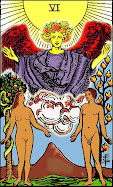Sexsomnia – having sex while asleep – is a common complaint of patients seeking treatment for sleep disorders, new research shows.
Nearly 8 percent of patients referred to a sleep disorders clinic reported they had initiated or taken part in sexual behavior while sleeping. Men accounted for three-quarters of the self-reported sexsomniacs.
"We were surprised at how common it was," said study author Sharon A. Chung, a staff scientist in the Sleep Research Laboratory at the University Health Network in Toronto. "We thought we'd get just a handful of people, yet it was almost one in twelve."
The research was to be presented yesterday at SLEEP 2010, the annual meeting of the Associated Professional Sleep Societies, in San Antonio.
In the study, researchers asked 832 patients about sexual behavior while sleeping, which can range from masturbation to intercourse. About 11 percent of men and 4 percent of women said they had engaged in "sleep sex."
Researchers said the prevalence is probably lower in the general population.
Sexsomnia is a form of a sleep disorder called parasomnia, or unwanted behavior that occurs during sleep. "An act of parasomnia can be as small as opening your eyes while fast asleep or grinding your teeth, to getting up and vacuuming, speaking, eating or having sex," Chung said.
Generally, people have no awareness of what they are doing and no recollection of it, Chung said.
Sexsomnia is more than a medical curiosity. It has been used as a criminal defense in sexual assault cases. In 2008, a Toronto man was found not guilty of sexually assaulting a woman after the court heard evidence that the man had engaged in "sleep sex" with several former girlfriends, according to news reports.
Colin Shapiro, the senior author of the paper, was an expert witness in that case, Chung noted, which got the team wondering just how common sexsomnia really was.
What brings on sexsomnia isn't really understood, but about twice as many patients who reported sexsomnia had used illegal drugs (15.9 percent vs. 7.7 percent) and were more likely to have consumed alcohol (41 percent vs. 27 percent). People who had experienced sexsomnia reported problems with insomnia (falling or staying asleep), fatigue and depression, although no more so than other patients at the sleep clinic. Rates of caffeine consumption and smoking were also similar, according to the study.
People experiencing a parasomnia are not often violent; they usually pose more of a threat to themselves, said Dr. Lisa Shives, medical director of Northshore Sleep Medicine in Evanston, Ill. But there are rare cases in which people have killed someone and claimed they were sleeping and unaware of their actions.
The good news is that parasomnia, sexsomnia included, is treatable with medications including benzodiazepines, such as clonazepam, which is also used to treat epilepsy and anxiety disorders, Shives said.
Yet few patients bring the issue up with the doctors. In the study, only four said they had previously told a medical professional about sexsomnia.
"Of the thousands of patients I've seen, I've never had someone come in complaining of sexsomnia, but I have always believed it's a bona fide disorder," Shives said. "It's a form of sleep walking. When people are sleep walking, they may do any rote or instinctual behavior. That can include walking, eating, driving and sexual activity."
The reason patients don't bring it up could be embarrassment, the fact that doctors rarely ask about it, or that patients aren't particularly bothered by it, Chung said.
"Is it a problem? As long as you don't get into legal problems and as long as your partner doesn't mind, it's not a problem," Chung said. "Although it can leave you tired the next day."
If you suffer from this troubling disorder talk to a doctor. Fight through the embarrassment and get the important help that is available.
— The Curator
Tuesday, June 8, 2010
Subscribe to:
Post Comments (Atom)




No comments:
Post a Comment